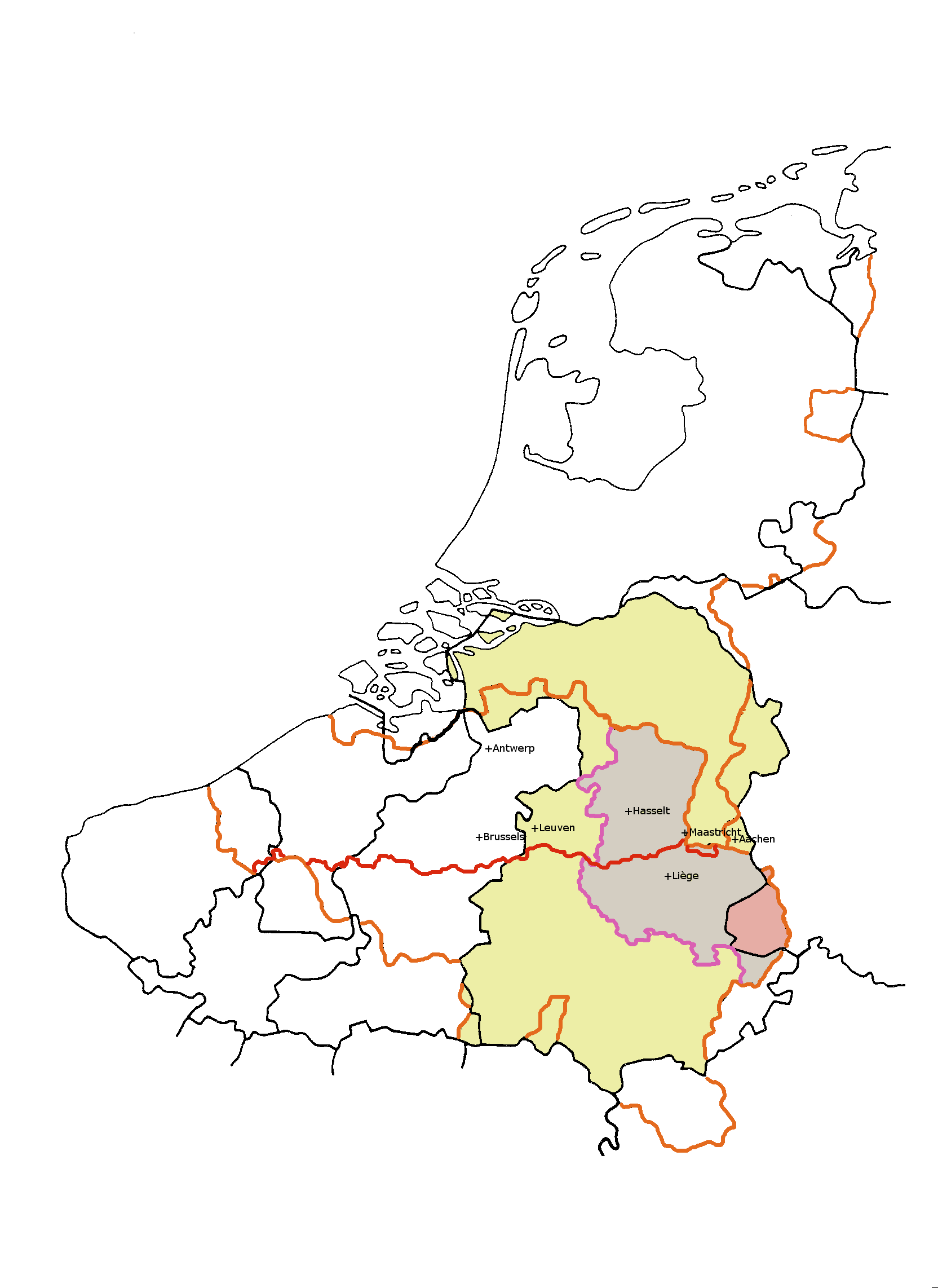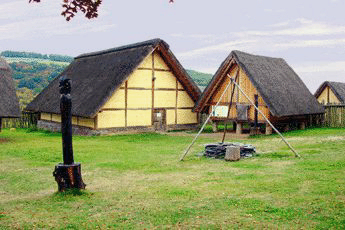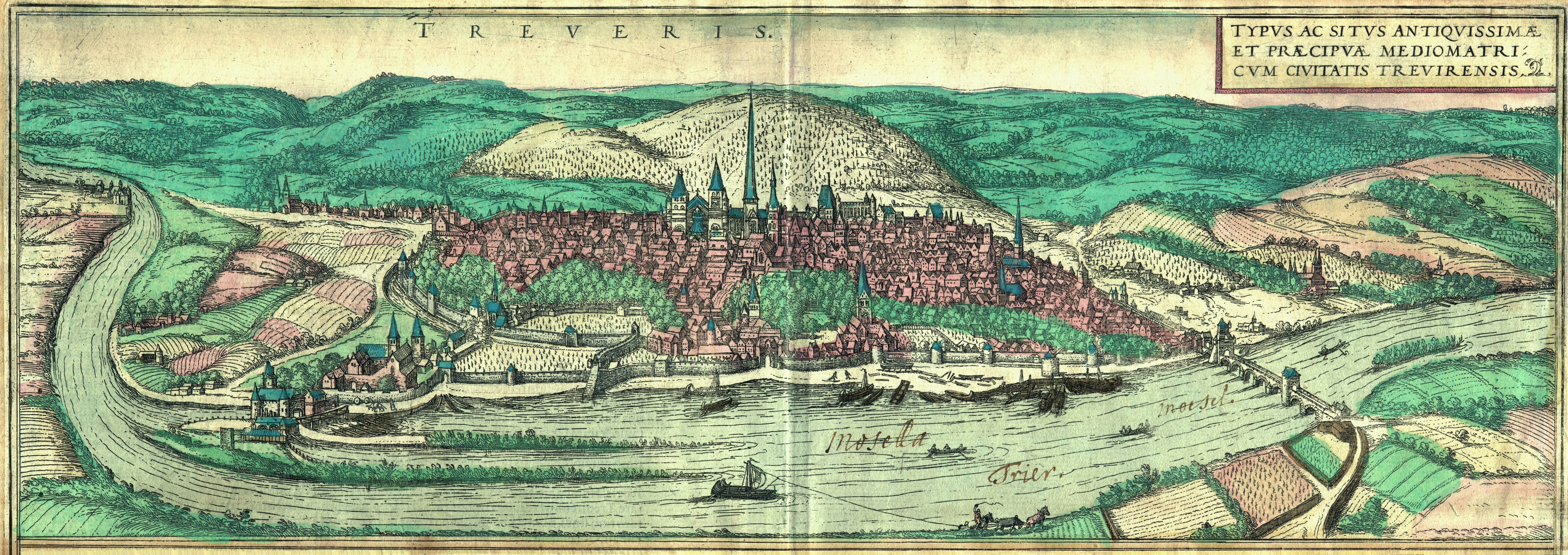|
Belgica
Gallia Belgica ("Belgic Gaul") was a Roman province, province of the Roman Empire located in the north-eastern part of Roman Gaul, in what is today primarily northern France, Belgium, and Luxembourg, along with parts of the Netherlands and Germany. In 50 BC, after the conquest by Julius Caesar during his Gallic Wars, it became one of the three parts of Gaul (Tres Galliae), the other two being Gallia Aquitania and Gallia Lugdunensis. An official Roman province was later created by emperor Augustus in 22 BC. The province was named for the Belgae, as the largest tribal confederation in the area, but also included the territories of the Treveri, Mediomatrici, Leuci, Sequani, Helvetii and others. The southern border of Belgica, formed by the Marne River, Marne and Seine rivers, was reported by Caesar as the original cultural boundary between the Belgae and the Celts, Celtic Gauls, whom he distinguished from one another. The province was re-organised several times, first increased and ... [...More Info...] [...Related Items...] OR: [Wikipedia] [Google] [Baidu] |
Belgae
The Belgae () were a large confederation of tribes living in northern Gaul, between the English Channel, the west bank of the Rhine, and the northern bank of the river Seine, from at least the third century BC. They were discussed in depth by Julius Caesar in his account of his wars in Gaul. Some peoples in Britain were also called Belgae, and O'Rahilly equated them with the Fir Bolg in Ireland. The Belgae gave their name to the Roman province of Gallia Belgica and, much later, to the modern country of Belgium; today "Belgae" is also Latin for "Belgians". Etymology The consensus among linguists is that the ethnic name ''Belgae'' comes from the Proto-Celtic root ''*belg-'' or ''*bolg-'' meaning "to swell (particularly with anger/battle fury/etc.)", cognate with the Dutch adjective ''gebelgd'' "very angry" (weak perfect participle of the verb ''belgen'' "to become angry") and ''verbolgen'' "being angry" (strong perfect participle of obsolete ''verbelgen'' "to make angry"), as well ... [...More Info...] [...Related Items...] OR: [Wikipedia] [Google] [Baidu] |
Durocortorum
Durocortorum was the name of the city Reims during the Roman era. It was the capital of the Remi tribe and the second largest city in Roman Gaul. Before the Roman conquest of northern Gaul, the city was founded circa 80 BC, served as the capital of the tribe of the Remi. In the course of Julius Caesar's conquest of Gaul (58–51 BC), the Remi allied themselves with the Romans, and, by their fidelity throughout the various Gallic insurrections, secured the special favour of imperial power. At its height in Roman times the city had a population in the range of 30,000 – 50,000 or perhaps up to 100,000, and was an important node in the road system of Gallia Belgica. After the installation of Magnus Maximus in Augusta Treverorum, Durocortorum was renamed ''Metropolis Civitas Remorum'', and no longer served as the capital of Gallia Belgica although it remained the capital of Belgica Secunda. Etymology and historical mentions The Latin Durocortōrum comes from the Celtic "Du ... [...More Info...] [...Related Items...] OR: [Wikipedia] [Google] [Baidu] |
Belgium
Belgium, ; french: Belgique ; german: Belgien officially the Kingdom of Belgium, is a country in Northwestern Europe. The country is bordered by the Netherlands to the north, Germany to the east, Luxembourg to the southeast, France to the southwest, and the North Sea to the northwest. It covers an area of and has a population of more than 11.5 million, making it the 22nd most densely populated country in the world and the 6th most densely populated country in Europe, with a density of . Belgium is part of an area known as the Low Countries, historically a somewhat larger region than the Benelux group of states, as it also included parts of northern France. The capital and largest city is Brussels; other major cities are Antwerp, Ghent, Charleroi, Liège, Bruges, Namur, and Leuven. Belgium is a sovereign state and a federal constitutional monarchy with a parliamentary system. Its institutional organization is complex and is structured on both regional ... [...More Info...] [...Related Items...] OR: [Wikipedia] [Google] [Baidu] |
Civitas Tungrorum
The ''Civitas Tungrorum'' was a large Roman administrative district dominating what is now eastern Belgium and the southern Netherlands. In the early days of the Roman Empire it was in the province of Gallia Belgica, but it later joined the neighbouring lower Rhine River border districts, within the province of Germania Inferior. Its capital was ''Aduatuca Tungrorum'', now Tongeren. Like many other Roman administrative districts, it was named after the tribal grouping that lived there, the Tungri, although that name is not known from the area before it became part of the Roman Empire. Also like other such districts, it became the basis for a medieval bishopric, but the bishops of Tongeren moved first to nearby Maastricht and then to Liège. Location The geographical boundaries of the ''civitas'' probably corresponded at least roughly to the area of the large medieval Catholic diocese of Liège, which was reduced in 1559. In modern terms this large diocese contained approximately th ... [...More Info...] [...Related Items...] OR: [Wikipedia] [Google] [Baidu] |
Treveri
The Trēverī (Gaulish: *''Trēueroi'') were a Celtic tribe of the Belgae group who inhabited the lower valley of the Moselle from around 150 BCE, if not earlier, until their displacement by the Franks. Their domain lay within the southern fringes of the ''Silva Arduenna'' ( Ardennes Forest), a part of the vast Silva Carbonaria, in what are now Luxembourg, southeastern Belgium and western Germany; its centre was the city of Trier (''Augusta Treverorum''), to which the Treveri give their name. Celtic in language, according to Tacitus they claimed Germanic descent.Tacitus writes, "The Treveri and Nervii are even eager in their claims of a German origin, thinking that the glory of this descent distinguishes them from the uniform level of Gallic effeminacy." ''Germania'' XXVIII. They possibly contained both Gallic and Germanic influences. Although early adopters of Roman material culture, the Treveri had a chequered relationship with Roman power. Their leader Indutiomarus led them ... [...More Info...] [...Related Items...] OR: [Wikipedia] [Google] [Baidu] |
Roman Gaul
Roman Gaul refers to GaulThe territory of Gaul roughly corresponds to modern-day France, Belgium and Luxembourg, and adjacient parts of the Netherlands, Switzerland and Germany. under provincial rule in the Roman Empire from the 1st century BC to the 5th century AD. History During the Republic The Roman Republic's influence began in southern Gaul. By the mid-2nd century BC, Rome was trading heavily with the Greek colony of Massalia, Massilia (modern Marseille) and entered into an alliance with them, by which it agreed to protect the town from local Gauls, including the nearby Aquitani and from sea-borne Carthaginians and other rivals, in exchange for land that it wanted in order to build a road to Hispania, to assist in troop movements to its provinces there. The Mediterranean settlements on the coast continued to be threatened by the powerful Gallic tribes to the north and in 122 BC the Roman general Gnaeus Domitius Ahenobarbus (consul 122 BC), Gnaeus Domitius Ahenoba ... [...More Info...] [...Related Items...] OR: [Wikipedia] [Google] [Baidu] |
Roman Province
The Roman provinces (Latin: ''provincia'', pl. ''provinciae'') were the administrative regions of Ancient Rome outside Roman Italy that were controlled by the Romans under the Roman Republic and later the Roman Empire. Each province was ruled by a Roman appointed as governor. For centuries it was the largest administrative unit of the foreign possessions of ancient Rome. With the administrative reform initiated by Diocletian, it became a third level administrative subdivision of the Roman Empire, or rather a subdivision of the imperial dioceses (in turn subdivisions of the imperial prefectures). Terminology The English word ''province'' comes from the Latin word ''provincia''. In early Republican times, the term was used as a common designation for any task or set of responsibilities assigned by the Roman Senate to an individual who held ''imperium'' (right of command), which was often a military command within a specified theatre of operations. In time, the term became t ... [...More Info...] [...Related Items...] OR: [Wikipedia] [Google] [Baidu] |
Augusta Treverorum
Trier in Rhineland-Palatinate, whose history dates to the Roman Empire, is often claimed to be the oldest city in Germany. Traditionally it was known in English by its French name of Treves. Prehistory The first traces of human settlement in the area of the city show evidence of linear pottery settlements dating from the early Neolithic period. Since the last pre-Christian centuries, members of the Celtic tribe of the Treveri settled in the area of today's Trier. Roman Empire The Romans under Julius Caesar first subdued the Treveri in 58 to 50 BC. No later than 16 BC, at the foot of the hill later christened the Petrisberg, upon which a military camp had been set up in 30 BC and abandoned again a few months later, the Romans founded the city of ("City of Augustus in the land of the Treveri"), which has a claim to being the oldest city in Germany. The honour of being named after the Emperor was only locally shared by Augsburg and Augst in northern Switzerland. Followi ... [...More Info...] [...Related Items...] OR: [Wikipedia] [Google] [Baidu] |
Gallia Aquitania
Gallia Aquitania ( , ), also known as Aquitaine or Aquitaine Gaul, was a province of the Roman Empire. It lies in present-day southwest France, where it gives its name to the modern region of Aquitaine. It was bordered by the provinces of Gallia Lugdunensis, Gallia Narbonensis, and Hispania Tarraconensis.John Frederick Drinkwater (1998). "Gaul (Transalpine)". ''The Oxford Companion to Classical Civilization.'' Ed. Simon Hornblower and Antony Spawforth. Oxford University PressOxford Reference Online Tribes of Aquitania Fourteen Celtic tribes and over twenty Aquitanian tribes occupied the area from the northern slopes of the Pyrenees in the south to the ''Liger'' (Loire) river in the north. The major tribes are listed at the end of this section.''Strabo: The Geography''The Aquitani There were more than twenty tribes of Aquitani, but they were small and lacking in repute; the majority of the tribes lived along the ocean, while the others reached up into the interior and to the sum ... [...More Info...] [...Related Items...] OR: [Wikipedia] [Google] [Baidu] |
Mediomatrici
The Mediomatrici (Gaulish: ''*Medio-māteres'') were according to Caesar a Gaulish tribe at the frontier to the Belgicae dwelling in the present-day regions Lorraine, Upper Moselle during the Iron Age and the Roman period. Name They are mentioned as ''Mediomatricorum'' and ''Mediomatricis'' (dat.) by Caesar (mid-1st c. BC), ''Mediomatrikoì'' (Μεδιοματρικοὶ ) by Strabo (early 1st c. AD), ''Mediomatrici'' by Pliny (1st c. AD), ''Mediomatricos'' (acc.) by Tacitus (early 2nd c. AD), and as ''Mediomátrikes'' (Μεδιομάτρικες) by Ptolemy (2nd c. AD). The ethnonym ''Mediomatrici'' is a latinized form of the Gaulish ''*Medio-māteres'', which literally means 'Middle-Mothers'. It is formed with the stem ''medio-'' ('in the middle, central') attached to a plural form of ''mātīr'' ('mother'). The name could be interpreted as meaning 'those who live between the Matrona (Marne) and the Matra rivers' (i.e. the mother-rivers), or possibly as the 'Mothers of the ... [...More Info...] [...Related Items...] OR: [Wikipedia] [Google] [Baidu] |
Trier
Trier ( , ; lb, Tréier ), formerly known in English as Trèves ( ;) and Triers (see also names in other languages), is a city on the banks of the Moselle in Germany. It lies in a valley between low vine-covered hills of red sandstone in the west of the state of Rhineland-Palatinate, near the border with Luxembourg and within the important Moselle wine region. Founded by the Celts in the late 4th century BC as ''Treuorum'' and conquered 300 years later by the Romans, who renamed it ''Augusta Treverorum'' ("The City of Augustus among the Treveri"), Trier is considered Germany's oldest city. It is also the oldest seat of a bishop north of the Alps. Trier was one of the four capitals of the Roman Empire during the Tetrarchy period in the late 3rd and early 4th centuries. In the Middle Ages, the archbishop-elector of Trier was an important prince of the Church who controlled land from the French border to the Rhine. The archbishop-elector of Trier also had great signific ... [...More Info...] [...Related Items...] OR: [Wikipedia] [Google] [Baidu] |
Gauls
The Gauls ( la, Galli; grc, Γαλάται, ''Galátai'') were a group of Celtic peoples of mainland Europe in the Iron Age and the Roman period (roughly 5th century BC to 5th century AD). Their homeland was known as Gaul (''Gallia''). They spoke Gaulish, a continental Celtic language. The Gauls emerged around the 5th century BC as bearers of La Tène culture north and west of the Alps. By the 4th century BC, they were spread over much of what is now France, Belgium, Switzerland, Southern Germany, Austria, and the Czech Republic, by virtue of controlling the trade routes along the river systems of the Rhône, Seine, Rhine, and Danube. They reached the peak of their power in the 3rd century BC. During the 4th and 3rd centuries BC, the Gauls expanded into Northern Italy ( Cisalpine Gaul), leading to the Roman–Gallic wars, and into the Balkans, leading to war with the Greeks. These latter Gauls eventually settled in Anatolia, becoming known as Galatians. After the ... [...More Info...] [...Related Items...] OR: [Wikipedia] [Google] [Baidu] |









